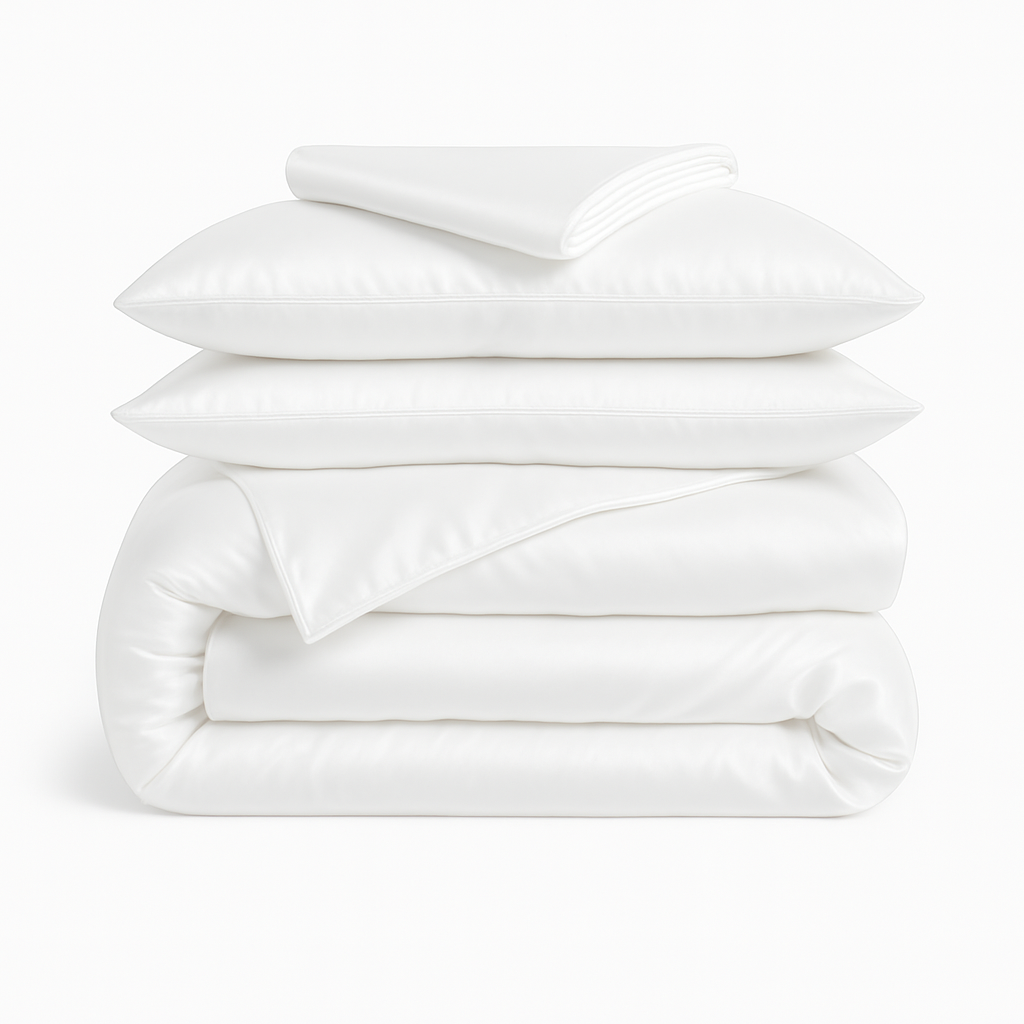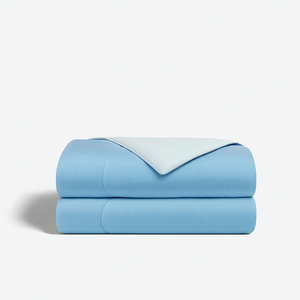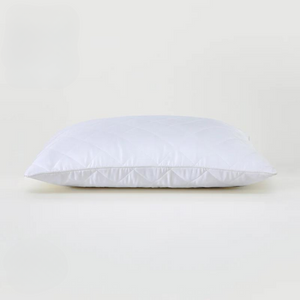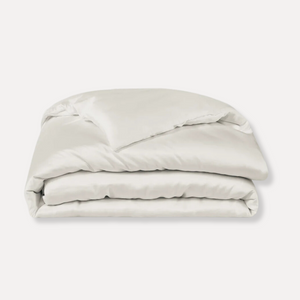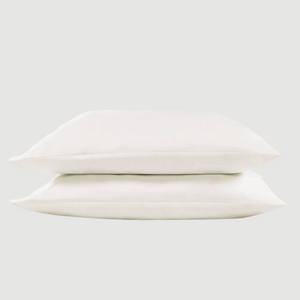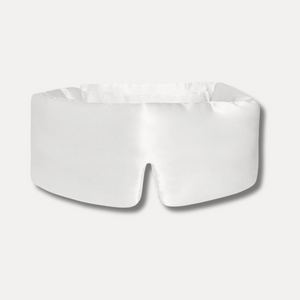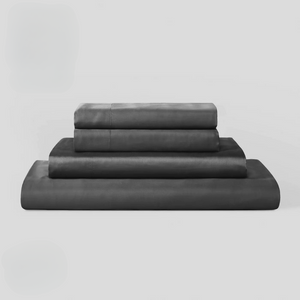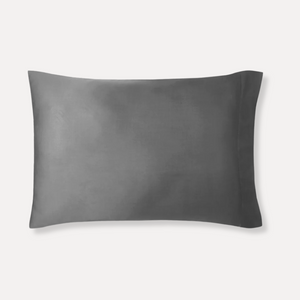When it comes to bedding, comfort starts with the fabric.
But with so many options — cotton, bamboo, eucalyptus, and more — how do you know which is right for you?
Each fabric has its own strengths and weaknesses. Some are better for cooling, others for softness or sustainability. In this guide, we’ll break down the differences between cotton, bamboo, and eucalyptus sheets, so you can find the perfect match for your sleep style.
1. Cotton: The Classic Choice
Cotton is the most familiar and widely used bedding material — and for good reason. It’s soft, breathable, and durable. But not all cotton is created equal.
Pros
- Soft & breathable: Especially with high-quality, long-staple cotton (like Egyptian or Pima).
- Durable: Can withstand frequent washing.
- Widely available: Easy to find in a range of price points and weaves (percale, sateen, jersey).
Cons
- Water-intensive: Traditional cotton production uses up to 10x more water than eucalyptus lyocell.
- Pesticide-heavy: Unless organic, cotton crops are often chemically treated.
- Not hypoallergenic: Cotton absorbs moisture and can harbor bacteria and dust mites over time.
- Wrinkles easily: Requires ironing or a relaxed approach to “lived-in” texture.
Best For:
Sleepers who love a classic, crisp sheet feel and don’t mind a little extra maintenance.
2. Bamboo: The Silky Soft Contender
Bamboo sheets have become popular for their buttery-soft feel and eco-friendly image. Most bamboo bedding is made from bamboo viscose (or rayon), a semi-synthetic fabric derived from bamboo pulp.
Pros
- Exceptionally soft: Often compared to silk — smooth and lightweight.
- Naturally antibacterial: Resists odor and bacterial growth.
- Hypoallergenic: Gentle on sensitive skin.
- Good moisture management: Wicks away sweat for a cooler night’s sleep.
Cons
- Chemical processing: Turning bamboo into viscose involves solvents that aren’t always environmentally safe (unless the brand uses a closed-loop process).
- Wrinkle-prone: Can crease easily if not removed promptly from the dryer.
- Durability varies: Quality depends on manufacturing — some bamboo sheets pill over time.
Best For:
Those who want ultra-soft, silky sheets and have sensitive skin, as long as they choose from a transparent, eco-certified brand.
3. Eucalyptus Lyocell: The Cool, Sustainable Innovator
Eucalyptus lyocell (often branded as TENCEL™ Lyocell) is the newest — and arguably most advanced — bedding material. Made from sustainably grown eucalyptus trees, it’s produced using a closed-loop system that recycles 99% of water and solvents, making it one of the most eco-friendly fabrics available.
Pros
- Naturally cooling: Ideal for hot sleepers — breathable, moisture-wicking, and cool to the touch.
- Sustainably made: Uses up to 10x less water than cotton and no harmful pesticides.
- Hypoallergenic & antibacterial: Naturally resists dust mites, mold, and bacteria — great for sensitive or acne-prone skin.
- Silky-smooth texture: Luxurious drape similar to sateen, but lighter and more breathable.
- Low maintenance: Resists wrinkles and stays soft wash after wash.
Cons
- Slightly higher cost: Premium production process and sustainability come at a higher price point.
- Less “crisp” than cotton: If you love the classic hotel-sheet feel, lyocell feels smoother and silkier instead.
Best For:
Sleepers who want cooling comfort, luxury softness, and eco-conscious design — without sacrificing durability or style.
Head-to-Head Comparison
| Feature | Cotton | Bamboo Viscose | Eucalyptus Lyocell (TENCEL™) |
|---|---|---|---|
| Softness | Soft to crisp, depending on weave | Silky-smooth, lightweight | Silky and cool, drapey texture |
| Breathability | Good | Very good | Excellent |
| Cooling | Moderate | High | Superior |
| Durability | High (esp. long-staple) | Moderate | High |
| Wrinkle Resistance | Low | Medium | High |
| Sustainability | Moderate (high water use) | Moderate–high (depends on processing) | Excellent (closed-loop, minimal water use) |
| Hypoallergenic | No | Yes | Yes |
| Eco Credentials | Organic options available | Varies by manufacturer | Certified sustainable process |
Sustainability Snapshot
- Cotton: Uses significant water and pesticides unless certified organic. A single cotton sheet set can require thousands of liters of water to produce.
- Bamboo: The plant itself is sustainable, but manufacturing varies — closed-loop processing (like lyocell) is best.
- Eucalyptus Lyocell: Made in a closed-loop system that reuses 99% of resources, producing minimal waste and emissions.
Fact: Eucalyptus lyocell requires up to 10x less water than cotton and no harmful dyes or bleaches (according to Ethical Bedding).
The Verdict: Which Should You Choose?
- Choose Cotton if you prefer a classic, crisp sheet feel and prioritize long-term durability.
- Choose Bamboo if you want silky softness and have sensitive skin, but check for responsible manufacturing.
- Choose Eucalyptus Lyocell if you crave cooling comfort, sustainability, and a luxurious drape that’s naturally kind to your skin and the planet.
For many modern sleepers — especially those who tend to overheat — eucalyptus sheets strike the best balance between comfort, performance, and environmental responsibility.
Sleep Smarter with Sustainable Luxury
At Loomii, we craft our bedding from 100% Eucalyptus Lyocell, designed to give you the softest, coolest, and most sustainable sleep imaginable.
Silky, breathable comfort
Hypoallergenic and antibacterial
Sustainably made with closed-loop technology
Perfect for hot sleepers and sensitive skin
